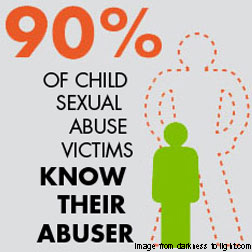Is the Home Safe From Sexual Abuse?

Shirin Bhasin has recently completed her graduation in B. Sc. (Hons.) Physics from University of Delhi in 2016. She enjoys spending time with friends and reading novels by Nicholas Sparks. As a girl living in Delhi, she strongly believes that women in India should not be withheld from their goals and dreams – professional or personal – just because of their gender. By joining Safecity, Shirin is trying to help make a difference for those girls and women out there who need the motivation to believe in themselves, before they believe in others.
Is the Home Safe From Sexual Abuse?
Rape and other forms of sexual abuse is often treated as a hush – hush topic. Often, people feel that if we ignore it, it will not happen. But we have to face the reality and accept the fact that sexual abuse occurs. Many a times the rapist is no other than a family member which is ironic as family members are supposed to take care of each other’s emotional and physically well-being. According to statistics, out of all the rapes that occur in India, 11.2% are by an immediate relative or partner and 22.1% of the rapes that occur are by a fiancé.
I want to discuss the adverse effects this can have on the victim mentally as well as physically. From the physical aspect, a victim of sexual abuse usually has signs of bruises, bleeding in the vaginal and/or anal area, soreness, difficulty walking, broken or dislocated bones due to resistance, other physical trauma (redness, rash, swelling) to genital or anal area, persistent or recurring pain during urination or bowel movements, wetting or soiling accidents unrelated to toilet training, etc.
The victim might also display signs of mental illness after being subjected to abuse. Often, victims develop post-traumatic stress disorder (PTSD), depression, and dissociation. PTSD is when the victim is so traumatised that the event repeatedly recurs in their mind. They feel anxious and are not able to handle any sort of situation that even vaguely reminds them of the unfortunate event. Depression is a state of mind where a person has “prolonged sadness, unexplained crying, changes in appetite with significant weight loss or gain, loss of interest and pleasure in activities previously enjoyed.” Dissociation is a case where the victim starts to daydream and starts to detach from the real world. Now, due to the physical and mental trauma, the victim is no longer able to trust people easily, they feel helpless, and a sense of vulnerability. They have a fear of the future, and tend to blame themselves for letting the crime happen in the first place.
One can easily find many articles online about where a daughter was raped by her father. One of those many stories that were featured talked about how a girl was constantly raped by her father and was later whipped by the elders in her village. Why was she whipped? Well, because she did not speak up against her father. This girl was approximately 14 years old (her parents do not know the year she was born in) and spent most of her life doing chores at home and begging on the streets for money. But, unfortunately, she had to bear the consequences of her father’s acts.
One is truly broken when such an incident happen, especially when it comes from a family member. Whenever we have a problem, we tend to approach a family member for help. But in this case, the victim becomes so confused and perplexed and does not know what to do. As a society, we need to help such victims talk about the experience and help them realise that it is NOT their fault. Here are a few organisations women can contact when in distress:



